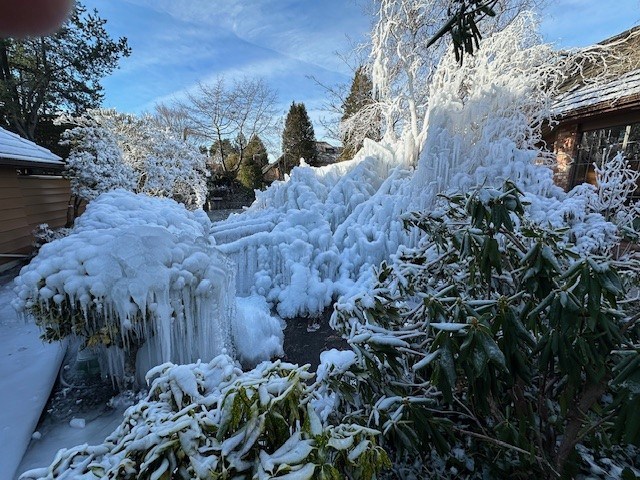An extreme cold snap that hit Western Canada in January led to at least $180 million in insured damages, according to the Insurance Bureau of Canada (IBC).
About 70 per cent of the total claims made across B.C., Alberta and Saskatchewan were due to personal property claims, such as water damage from burst pipes, according to initial estimates carried out for IBC by Catastrophe Indices and Quantification Inc. (CatIQ).
“It's been an unusual winter season, with extreme swings in conditions across the country,” said Rob de Pruis, IBC’s national director of consumer and industry relations.
A spokesperson for IBC said damage estimates do not include the catastrophic loss many farmers faced in places like B.C.’s Okanagan Valley, where grape producers are estimated to have lost nearly all of this year’s crop.
The deep freeze in mid-January saw temperatures in major wine-producing areas of B.C.'s southern Interior drop to -27 C, a lethal temperature for grapevines and their buds, no matter the variety.
A February report from Wine Growers BC estimates a harvest of only one to three per cent of normal levels, meaning "an almost complete writeoff of the 2024 vintage" and revenue losses of up to $346 million for vineyards and wineries.
The latest cold snap is part of a pattern of extreme weather swings that now routinely exceed $2 billion in insured damages across Canada every year. Last year, insured damages due to extreme weather soared to over $3.1 billion. The wildfires in the Shuswap and Okanagan were the costliest extreme weather events last year, together making up $720 million of the total.
“By comparison, between 2001 and 2010, Canadian insurers averaged $675 million a year in losses related to severe weather,” said the industry association in a statement.
With files from The Canadian Press


